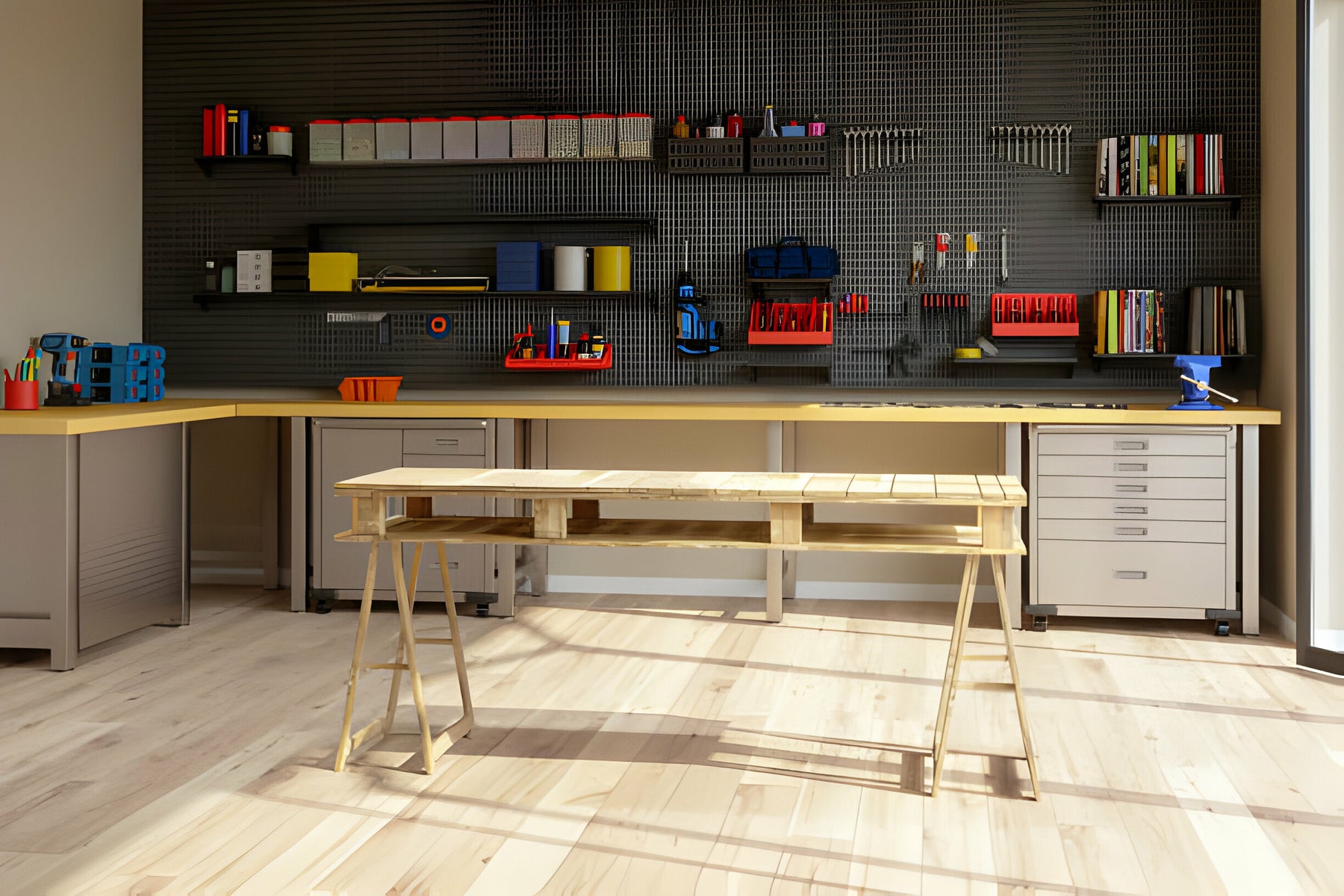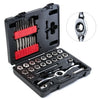
Repurposing Household Items for Workshop Storage
A well-organized workshop is the cornerstone of any DIY enthusiast or professional craftsman. An efficiently arranged workspace not only enhances productivity but also creates a conducive environment for creativity. While investing in specialized storage solutions can be tempting, there's a cost-effective and eco-friendly alternative – repurposing household items for workshop storage. In this comprehensive guide, we'll explore innovative DIY workshop organization hacks that leverage everyday items to keep your tools, materials, and workspace in top-notch order.
Section 1: The Art of Repurposing
1.1 Understanding Repurposing in Workshop Organization
Before delving into specific hacks, it's essential to grasp the concept of repurposing and how it applies to workshop organization. Repurposing involves giving a new and often unexpected function to items that may have initially served a different purpose. By adopting a creative mindset, you can transform common household items into effective storage solutions, saving both money and resources.
1.2 Benefits of Repurposing in Workshop Organization
The benefits of repurposing extend beyond just cost savings. Utilizing items, you already have at home reduces waste, promotes sustainability, and encourages a mindset of resourcefulness. Additionally, repurposed storage solutions can add a unique touch to your workshop, reflecting your personality and creativity.
Section 2: Repurposing Household Items for Workshop Storage
2.1 Mason Jars as Tool Holders
Mason jars are versatile containers that can be repurposed for various storage needs. Screw the jar lids to the bottom of a shelf or cabinet, creating a secure and easily accessible space to store screws, nuts, bolts, and small tools. This simple hack not only organizes your tools but also provides a visually appealing display.
2.2 Pegboard Solutions
Pegboards are a classic choice for workshop organization, but you can take it a step further by repurposing household items. Attach binder clips to the pegboard, transforming them into convenient holders for cables, extension cords, and other elongated tools. This not only declutters your workspace but also prevents tangling and damage.
2.3 PVC Pipe Tool Rack
Repurpose PVC pipes by cutting them into segments and mounting them horizontally on a wall. These cylindrical segments can hold various hand tools, keeping them within arm's reach. This straightforward and cost-effective solution ensures that your tools are organized and easily accessible.
2.4 Old Furniture for Large Tool Storage
Consider repurposing old furniture like dressers or cabinets to store larger tools such as power drills, saws, and sanders. With a fresh coat of paint and some strategic modifications, you can create a stylish and functional storage unit that complements your workshop's aesthetic.
2.5 Magnetic Strip for Small Metal Tools
Attach a magnetic strip to the wall or the inside of a cabinet door to store small metal tools like screwdrivers, wrenches, and pliers. This hack not only keeps your tools organized but also makes it easy to locate and retrieve them quickly.
2.6 Egg Carton Drawer Organizer
Utilize empty egg cartons to organize small items like nails, screws, or even tiny electronic components. Place the egg cartons in a drawer, and you'll have a segmented organizer that prevents small items from mixing and makes it easy to find what you need.
Section 3: Tips for Implementing Repurposed Storage Solutions
3.1 Assess Your Workshop Needs
Before diving into the world of repurposing, take stock of your workshop's specific organizational requirements. Understanding what needs to be stored and accessed frequently will guide your choice of household items to repurpose.
3.2 Embrace Creativity and Flexibility
Repurposing requires a creative mindset and flexibility in thinking. Don't limit yourself to conventional storage ideas; instead, explore unconventional solutions and adapt them to suit your workshop's unique layout and requirements.
3.3 Invest in Quality Fasteners and Mounting Tools
Ensuring the stability and durability of your repurposed storage solutions is crucial. Invest in high-quality fasteners, screws, and mounting tools to securely attach items to walls, shelves, or other surfaces.
3.4 Regularly Review and Update
Workshops are dynamic spaces, and your organizational needs may change over time. Regularly review your storage solutions and make adjustments as needed to accommodate new tools or changes in your workflow.
Section 4: Going Beyond Repurposing – Additional Workshop Organization Tips
4.1 Labeling Systems
Implementing a labeling system is a simple yet effective way to enhance workshop organization. Clearly label containers, shelves, and drawers to streamline the process of finding tools and materials.
4.2 Modular Storage Units
Consider investing in modular storage units that can adapt to your changing needs. These versatile systems often come with customizable compartments and can be rearranged to accommodate different tool sizes.
4.3 Wall-Mounted Shelves
Maximize vertical space by installing wall-mounted shelves. These shelves can hold a variety of items, from power tools to paint cans, freeing up valuable floor space and creating a more organized and efficient workspace.
4.4 Rolling Tool Carts
For those who require mobility in their workshop organization, rolling tool carts are an excellent solution. These carts provide a designated space for tools and can be easily moved around the workshop as needed.
Getting Your DIY Organized
In the realm of DIY workshop organization, the fusion of creativity, functionality, and sustainability
becomes apparent through the innovative repurposing of household items. As we conclude our exploration of maximizing efficiency in workshop spaces, it's crucial to emphasize the lasting impact that these repurposed storage solutions can have on both your workspace and the environment.
The beauty of repurposing lies not only in its cost-effectiveness but also in its contribution to a sustainable and eco-friendly approach to organization. By breathing new life into items that might have otherwise ended up in landfills, you are actively participating in the reduction of waste and promoting a more mindful use of resources. This not only benefits your immediate surroundings but also sets an example for a conscious and responsible DIY community.
Moreover, the personalized touch that repurposed storage solutions add to your workshop creates a unique and inspiring environment. Your workspace becomes an extension of your creativity and ingenuity, showcasing a blend of functionality and aesthetics. Every mason jar, pegboard clip, or repurposed furniture piece tells a story of resourcefulness and adaptability, turning your workshop into a haven that resonates with your individuality.
As you embark on the journey of implementing these hacks, it's essential to remember that workshop organization is a dynamic process. Regular assessments and adjustments will ensure that your space remains tailored to your evolving needs. Embrace the principles of creativity and flexibility, allowing your workshop to grow and adapt alongside your projects and ambitions.
The DIY workshop is not merely a space to create; it's an expression of your passion and commitment to your craft. By incorporating repurposed household items into your organization strategy, you not only enhance efficiency but also contribute to a sustainable and harmonious relationship between your creative endeavors and the world around you. Maximize efficiency, minimize waste, and let your organized workshop be a testament to the artistry that extends beyond your projects into the very essence of your workspace.



